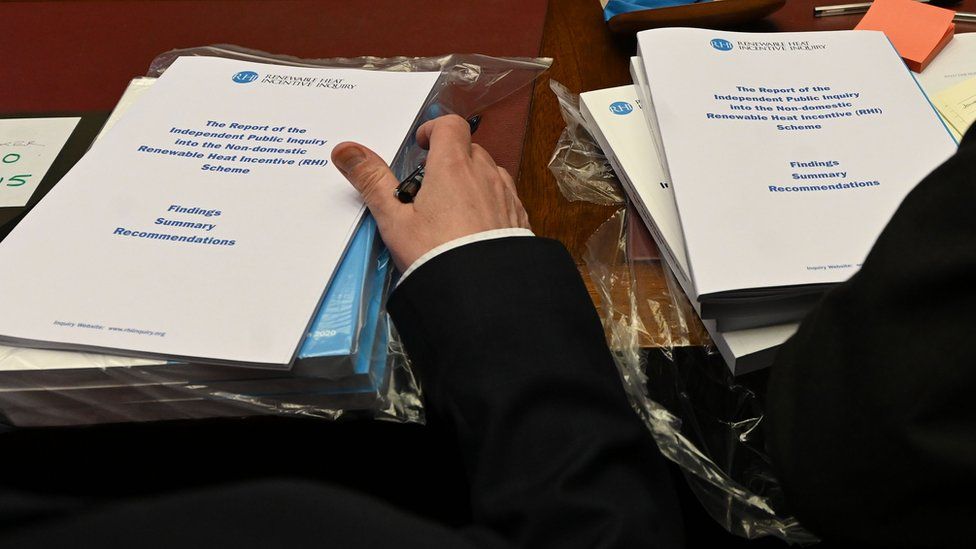RHI report: Some of the key recommendations
- Published

The report into the Renewable Heat Incentive (RHI) Scheme runs to 656 pages, over three volumes.
It has 56 chapters, with some 276,000 words.
It has 319 findings and here are some of the 44 recommendations laid out by Sir Patrick Coghlin and his fellow panel members.
Key Recommendations:
- Action is needed to raise and sustain the quality of advice to ministers
- Ministers should be given training on their role in relation to policy, legislation and on the working of public expenditure and value for money
- Ministers should be responsible for their special advisers
- There should be a clearly defined induction process for new special advisers
- The Northern Ireland Civil Service (NICS) should appoint people with the skills required for the role, rather than matching a person to a role according to a person's grade
- NICS senior managers need to take responsibility for the timing of staff moves so that the continuity of business is secured
- In light of their legal responsibility to direct and control the department for which they are responsible, ministerial decisions should be taken by ministers and by no one else
- Notes of significant meetings between officials and ministers much be taken and retained
- Civil servants who are responsible for holding and monitoring a budget should demonstrate financial literacy and how public spending operates
- Better systems are needed for spotting early warnings and concerns from the public and businesses
- NICS should develop processes to learn from past failures
- The Northern Ireland Assembly should consider what steps are needed to strengthen its scrutiny role, particularly as conducted by assembly committees
- Any minister presenting to the assembly with legislation for approval should sufficiently read and familiarise themselves with that legislation
- The Code of Conduct issued to executive ministers in 2007 should be revised. That code would, among other things: make clear ministers have an active role in questioning and challenging the advice they receive